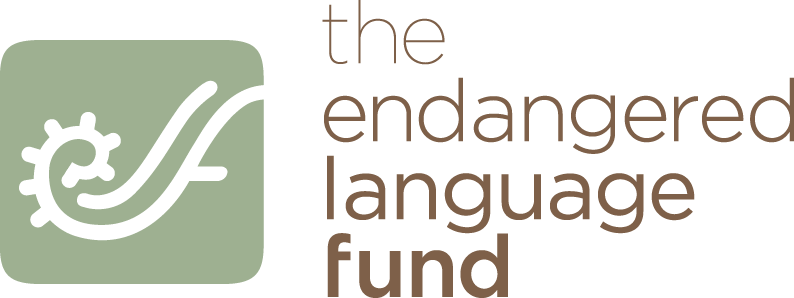Native Voices Endowment Recipients - 2014
Valerie Switzler - Confederated Tribes of Warm Springs
Working With Kiksht Legacies
This project will develop a strong base of volunteers to produce materials for future scholarship and teaching in the Kiksht language. It will give Kiksht learners the ability to make use of over 200 audio and video recordings left by elders to create another generation of speakers and teachers. Kiksht (ISO 636-3 chh) is a sleeping language and the remaining speakers are not currently well-equipped to teach Kiksht effectively in terms of technology, curriculum, or documentation. With only two speakers of advanced Kiksht proficiency, the need for teacher training and a robust, organized curriculum and corpus of learning materials is of immense importance, especially to the Wasco children of Warm Springs. The project has three specific objectives: (1) Gain the knowledge to access and utilize existing Kiksht materials and learn techniques for further documentation, in part by sending four Kiksht community members to the 2015 Northwest Language Institute (NILI) summer workshop; (2) Develop a learning plan for current adult learners of Kiksht, to be modified as needed for subsequent programs focused on children and families; (3) Supply Kiksht language leaders with the equipment and training necessary to create and maintain a curriculum and accessible body of materials for language education programs. All materials will then become part of the archival holdings of the tribe.
Clyde Tyndall - Indian Center, Inc.
Ponca Language Dictionary
This project proposes to work with fluent speaker Louis Headman to develop a dictionary of the Ponca language (ISO 639- 3 oma). The Ponca Tribes of Oklahoma and Nebraska believe that successful completion of this Ponca Language Dictionary will provide a resource from which both tribes can restore and revitalize the language. The focus of the project will be on the language as it is spoken today and in relation to its oral literature, which will furnish examples for the dictionary. The Ponca language has less than five fluent speakers, all over the age of 75. The community is geographically divided, which has made joint language preservation efforts difficult. However, recent developments in technology have provided the tribes with new opportunities to collaborate in preserving the Ponca language, which will be enhanced by the Ponca Language Dictionary.
Robert Brave Heart, Sr. - Red Cloud Indian School
Mahpiya Luta Lakol Waunspe Wicakiyapi – Teaching Lakota to Red Cloud Students
ELF is providing continued support of Red Cloud Indian School and their efforts to develop and implement a comprehensive K-12 Lakota (ISO 639-3 lkt) curriculum. Although there are an estimated 6,000 fluent speakers of Lakota, the average speaker age is nearly 65 years, so the language is endangered. The focus of this year’s project is on the development of a complete set of readers for grades K-12 and an expansion of community outreach, including the following goals: (1) Develop Lakota language-based literature; (2) Provide professional development opportunities for Lakota language teachers in curriculum materials, second language acquisition techniques, lesson planning, assessment, and data analysis; (3) Increase the use of the Lakota language in students’ homes and in the community; (4) Begin building a Lakota library by gathering, transcribing, and translating materials. With past funding, the project held their first Lakota Language Summer Camp. In addition, the first graduating class completed four full years of high school level Lakota language classes with 86% of students showing improvement throughout the year. Students felt more motivated and comfortable with their Lakota identity in and out of school, and taking science, math, and art classes in Lakota helped to reinforce the importance of the language.
Marsha Wynecoop - Spokane Tribe of Indians
Spokane Language Dictionary 2nd Edition
This project will complete and publish the second edition of the Spokane Language (ISO 639-3 spo) Dictionary to assist in the tribe’s language revitalization program. It will aid teachers and trainees, second language learners, elders, and students, but also other Salish- speaking tribes. The increased interest in the language and abilities of speakers will encourage appreciation of the language and will promote recognition of elder speakers. In addition, it will help prepare the community for the future Language Nest Immersion School. There are currently only 11 fluent speakers of Spokane Salish. The community is working to keep the language alive by holding adult classes as well as teaching young people. The Spokane Tribe’s Language/Culture Department is working to increase the number of fluent speakers, train teachers, implement an immersion program in tribal schools, and utilize community outreach to promote interest in language use.
Cynthia L. Catches - Oceti Wakan “Sacred Fireplace”
Lakota Language Learning Stations/Elder Interaction
To create a “safe place” for young people to practice simple, conversational sentences, 44 ‘Lakota Language Learning Stations’ (LLLSs) were built with the help of an earlier ANA grant. These stations allow students to listen to recordings and record themselves speaking Lakota. The current ELF grant will allow for an elder to work as a Lakota teacher and also to continue the program, so students will have both Lakota classes and time working at the LLLS stations. Additionally, continuing this program will give insight into students’ progress in learning and using the language. ELF support will allow for further development of the program with a long-term goal of sharing it with other schools to encourage children to start speaking a little bit more every day.
Working With Kiksht Legacies
This project will develop a strong base of volunteers to produce materials for future scholarship and teaching in the Kiksht language. It will give Kiksht learners the ability to make use of over 200 audio and video recordings left by elders to create another generation of speakers and teachers. Kiksht (ISO 636-3 chh) is a sleeping language and the remaining speakers are not currently well-equipped to teach Kiksht effectively in terms of technology, curriculum, or documentation. With only two speakers of advanced Kiksht proficiency, the need for teacher training and a robust, organized curriculum and corpus of learning materials is of immense importance, especially to the Wasco children of Warm Springs. The project has three specific objectives: (1) Gain the knowledge to access and utilize existing Kiksht materials and learn techniques for further documentation, in part by sending four Kiksht community members to the 2015 Northwest Language Institute (NILI) summer workshop; (2) Develop a learning plan for current adult learners of Kiksht, to be modified as needed for subsequent programs focused on children and families; (3) Supply Kiksht language leaders with the equipment and training necessary to create and maintain a curriculum and accessible body of materials for language education programs. All materials will then become part of the archival holdings of the tribe.
Clyde Tyndall - Indian Center, Inc.
Ponca Language Dictionary
This project proposes to work with fluent speaker Louis Headman to develop a dictionary of the Ponca language (ISO 639- 3 oma). The Ponca Tribes of Oklahoma and Nebraska believe that successful completion of this Ponca Language Dictionary will provide a resource from which both tribes can restore and revitalize the language. The focus of the project will be on the language as it is spoken today and in relation to its oral literature, which will furnish examples for the dictionary. The Ponca language has less than five fluent speakers, all over the age of 75. The community is geographically divided, which has made joint language preservation efforts difficult. However, recent developments in technology have provided the tribes with new opportunities to collaborate in preserving the Ponca language, which will be enhanced by the Ponca Language Dictionary.
Robert Brave Heart, Sr. - Red Cloud Indian School
Mahpiya Luta Lakol Waunspe Wicakiyapi – Teaching Lakota to Red Cloud Students
ELF is providing continued support of Red Cloud Indian School and their efforts to develop and implement a comprehensive K-12 Lakota (ISO 639-3 lkt) curriculum. Although there are an estimated 6,000 fluent speakers of Lakota, the average speaker age is nearly 65 years, so the language is endangered. The focus of this year’s project is on the development of a complete set of readers for grades K-12 and an expansion of community outreach, including the following goals: (1) Develop Lakota language-based literature; (2) Provide professional development opportunities for Lakota language teachers in curriculum materials, second language acquisition techniques, lesson planning, assessment, and data analysis; (3) Increase the use of the Lakota language in students’ homes and in the community; (4) Begin building a Lakota library by gathering, transcribing, and translating materials. With past funding, the project held their first Lakota Language Summer Camp. In addition, the first graduating class completed four full years of high school level Lakota language classes with 86% of students showing improvement throughout the year. Students felt more motivated and comfortable with their Lakota identity in and out of school, and taking science, math, and art classes in Lakota helped to reinforce the importance of the language.
Marsha Wynecoop - Spokane Tribe of Indians
Spokane Language Dictionary 2nd Edition
This project will complete and publish the second edition of the Spokane Language (ISO 639-3 spo) Dictionary to assist in the tribe’s language revitalization program. It will aid teachers and trainees, second language learners, elders, and students, but also other Salish- speaking tribes. The increased interest in the language and abilities of speakers will encourage appreciation of the language and will promote recognition of elder speakers. In addition, it will help prepare the community for the future Language Nest Immersion School. There are currently only 11 fluent speakers of Spokane Salish. The community is working to keep the language alive by holding adult classes as well as teaching young people. The Spokane Tribe’s Language/Culture Department is working to increase the number of fluent speakers, train teachers, implement an immersion program in tribal schools, and utilize community outreach to promote interest in language use.
Cynthia L. Catches - Oceti Wakan “Sacred Fireplace”
Lakota Language Learning Stations/Elder Interaction
To create a “safe place” for young people to practice simple, conversational sentences, 44 ‘Lakota Language Learning Stations’ (LLLSs) were built with the help of an earlier ANA grant. These stations allow students to listen to recordings and record themselves speaking Lakota. The current ELF grant will allow for an elder to work as a Lakota teacher and also to continue the program, so students will have both Lakota classes and time working at the LLLS stations. Additionally, continuing this program will give insight into students’ progress in learning and using the language. ELF support will allow for further development of the program with a long-term goal of sharing it with other schools to encourage children to start speaking a little bit more every day.

